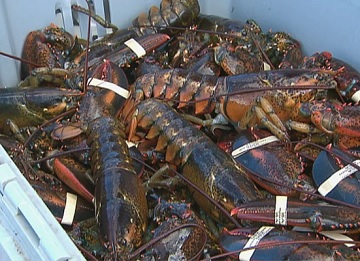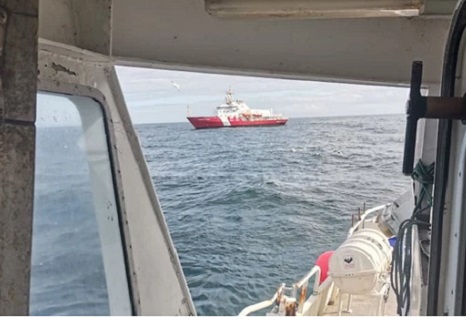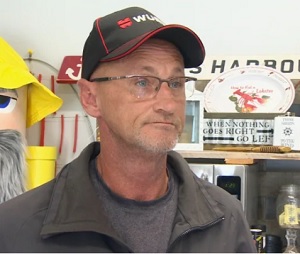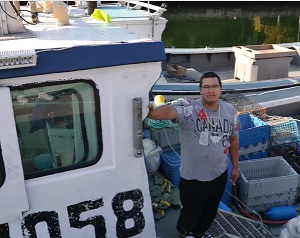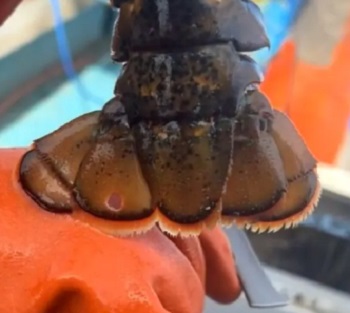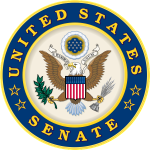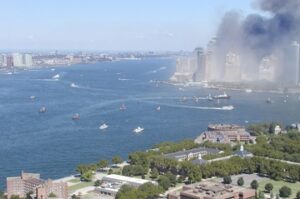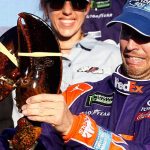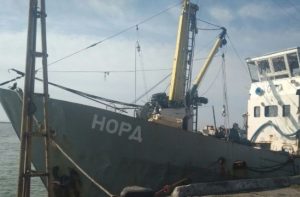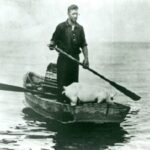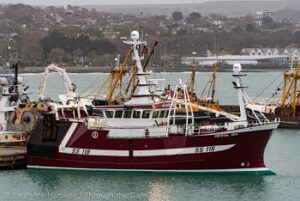Tag Archives: DFO
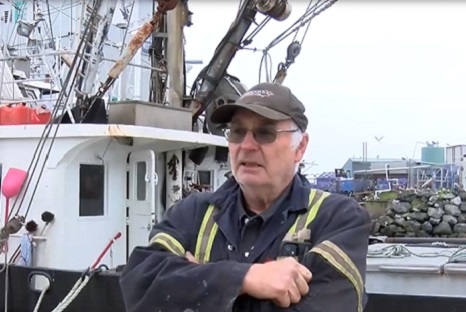
Island fishermen ‘worried’ as cons call to stop herring fishery set to start in days
Lasqueti Island herring fisherman Billy Forbes worries about the future of his four-generation long fishing family. After 51 years of captaining fishing boats in the Strait of Georgia, Forbes said he’s unsure if handing over the family’s namesake boat would be a gift to his grandson or a curse. “This is all he knows, so if there’s nothing left for him he’s gotta find something else,” said Forbes. Taylor Forbes, 23, said he has started to lose hope there’s a future in fishing. Video, >click to read< 08:21
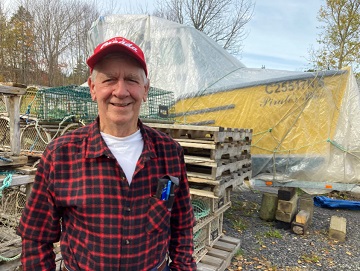
Lobster harvesters feel forced to fish until they die by DFO policy
Raymond O’Toole finds it hard fishing alone. He is 85. When he took over a lobster license at 14, there was little that could keep him and his punt off the water. This season, his 71st on the water, he broke a bone in his back heaving the wooden traps that can weight 50 lbs a piece. “I’d retire if I could sell or transfer my license, but when I die, it goes with me,”,,, Across the Strait in Mulgrave, 80 year-old Richard Power contends that his lobster license has long been tied to economic outcomes for his family. With eight siblings to feed, at 12 years old he took up the oars behind his half blind father in the dory. >click to read< 10:36

Category B lobster licence holders still facing 50-year-old punishment
In 1976 DFO created the “moonlighter policy” which was aimed at removing people from the fishery as a conservation method. The result is that it has unfairly targeted fishers who held other jobs or professions almost 50 years ago. DFO deemed fishing was not their primary source of income and they became the “Class B” fishers.,, “It hangs over my head, that when I am gone, I leave nothing to my son. It all goes to the grave with me – boat, traps, licence. This is not fair,” said Clayton Smith of Salmon Beach, N.B. >click to read< 07:45
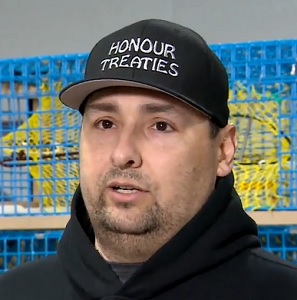
Sipekne’katik chief ‘optimistic’ about newly appointed fisheries minister
The chief of Sipekne’katik First Nation in Nova Scotia says he’s looking forward to a clean slate with the newly appointed fisheries minister. MP Joyce Murray, who represents Vancouver Quadra, was named minister of fisheries and oceans when Justin Trudeau unveiled his new cabinet Tuesday.,, Mike Sack said since the federal election, he has been “waiting patiently” for Trudeau to name a new minister. He adds he plans to reach out to Murray soon for a one-on-one chat. >click to read< 10:33

A year ago violence erupted in the lobster fishery, “moderate livelihood” fishery status unresolved
One year ago, confrontation and violence upended the normally business-like commercial lobster season in St. Mary’s Bay and Lobster Fishing Area 35 in southwest Nova Scotia. Tensions between Indigenous and non-Indigenous fishermen in the bay had erupted in several dangerous boat-ramming incidents.,, But a full year later, as the wheels of justice turn ever so slowly, none of those charged have entered a plea. Before we examine how that happened, it’s worth noting some updates in the troubled fishery. >click to read< 10:07
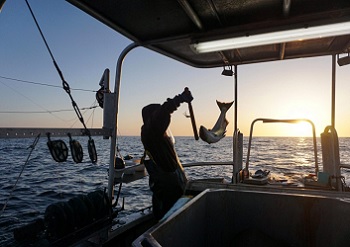
Fishery Closures and the Ghosts of Past Mistakes
The news spread quickly across the calm June waters off the west coast of Vancouver Island, British Columbia, as fishers jumped on the radio to figure out what had just happened. The radio chatter was incessant as fishers wondered aloud where they’d be allowed to fish, if they would be out of business, and what the future would hold. “Everyone was freaking out because all of those questions were unanswered,” Christian says, adding this policy will likely end British Columbia’s commercial salmon industry.,, Under the PSSI, DFO plans to close 57 percent of the 138 Pacific salmon fisheries along the west coast of British Columbia and Yukon. >click to read< 10:06

Access: Fight over emerging redfish fishery amps up as offshore sector bites back
In a highly managed media event staged at Memorial University’s Signal Hill campus, officials from the Atlantic Groundfish Council, which represents more than 100 offshore groundfish licence holders in Atlantic Canada, and Ocean Choice International, fought back against what they say is an attack that threatens the livelihood of people linked to the offshore sector. “It’s time this attack stops. It’s negative. It’s divisive and it’s not good for the province,” said Martin Sullivan, CEO and co-owner of Ocean Choice International,,, >click to read< 07:51
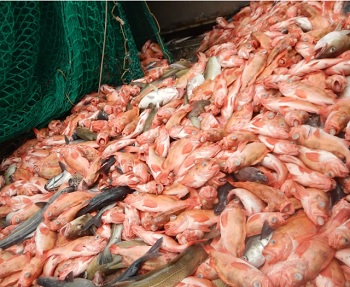
The NLGIDC Supports the Position of an Inshore Fisheries Coalition on the New Redfish Fishery
The Newfoundland and Labrador Groundfish Industry Development Council (NLGIDC) clearly supports the position of a coalition of inshore harvester associations, Indigenous nations, and those involved in seafood processing in Newfoundland & Labrador, Quebec and New Brunswick. This coalition issued a News Release on this important issue on October 14, 2021 that called on the Department of Fisheries and Oceans (DFO) to immediately suspend its consultation process on the rapidly growing redfish resource in the Gulf of St. Lawrence. >click to read< 09:57

The redfish fishery is returning. So is angst about quotas for inshore harvesters
A coalition led by the union representing workers in Newfoundland and Labrador’s fishing industry is sounding the alarm about plans for an emerging commercial redfish fishery, saying there are big concerns about potential quotas for inshore harvesters.,, That process is favouring the offshore sector, according to the president of the Fish, Food and Allied Workers union, and forgetting the inshore harvesters when it comes to redfish. Keith Sullivan and the FFAW spoke out at Thursday on behalf of a coalition that includes inshore harvester associations, Indigenous groups and seafood processors in Atlantic Canada. >click to read< 09:17
The NLGIDC Supports the Position of an Inshore Fisheries Coalition on the New Redfish Fishery – >click to read<
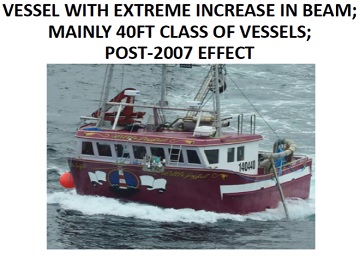
DFO rules forcing fishing industry into unstable boats
The ability to safely navigate in rough seas is not only dependent on experience. Boat design and stability are also crucial factors. And vessel stability expert Dag Friis says the current trend in Atlantic Canada to build wider fishing boats, to create more deck space and to comply with the maximum vessel length criteria set by the Department of Fisheries and Oceans (DFO), is putting those boats, and their crews, at risk. photos, >click to read< 15:02
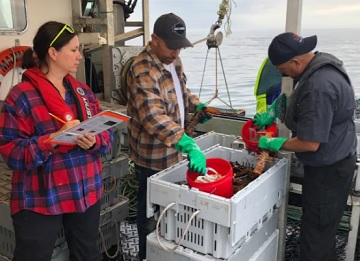
Sipekne’katik First Nation’s lobster study to assess impact of summer and fall fishing
The boat, Mamma Ain’t Happy, is owned by Sipekne’katik First Nation and is fishing under food, social, and ceremonial (FSC) tags. The tags are the licence under which the lobster can legally be fished and allow the band to harvest it for those purposes but not to sell it. After each trip, the catch is brought back to the community for lobster giveaways that feed most of the families in the second-largest Mi’kmaw band in Nova Scotia. But this boat doesn’t just fish for people’s supper. It’s also a data collection site for a study on lobster conservation. >click to read< 13:48
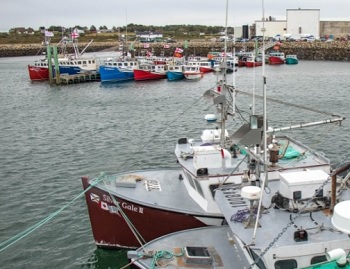
DFO arrests, release 3 connected with last week’s St. Marys Bay lobster shipment seizure
DFO arrested and released three more people in connection with last week’s seizure of a lobster shipment that originated from St. Marys Bay, N.S., where a controversial Mi’kmaw lobster fishery is underway. Last week, DFO said it seized a “significant quantity of lobster,” a vehicle and a trailer in New Brunswick. Two people were arrested and released. The lobsters were released back into the ocean. DFO did not say where or when the three other arrests took place. DFO declined to provide further details because both matters are part of ongoing investigations. >click to read< 22:26
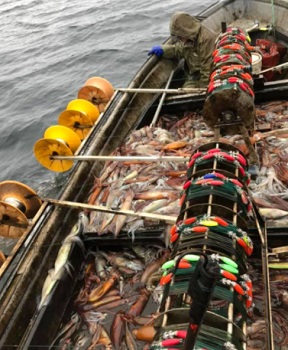
The Squid Tsunami in Newfoundland
Thousands of pounds of the tentacled invertebrate are so plentiful this year they’ve been washing up on beaches around the island of Newfoundland. In fact, the amount of squid landed this year will likely double last year’s landings, according to Derek Butler.,, “It’s huge landings this year and it’s more than we need, to be quite blunt,” he said, adding squid landings have also been good in Argentina, which also supplies the bait market. Some Newfoundland processors have already stopped buying. >click to read< 10:47

Should the next fisheries minister come from central Canada?
On election night, Prime Minister Justin Trudeau’s first cabinet casualty came early as Fisheries Minister Bernadette Jordan tumbled to defeat in Nova Scotia’s South Shore, St. Margarets riding. Her defeat means her successor will inherit the unresolved dispute over Nova Scotia’s Indigenous moderate livelihood lobster fishery. And that potentially means a clean slate for negotiations between all parties involved. And the chief of the band at the centre of that fishery says maybe the best way to establish that clean slate would be to enlist a fisheries minister from the interior, rather than the coasts, where they would be exposed to the pressures of their community. >click to read< 20:33

DFO returns patrol boats back to the wharf in Meteghan
After a confusing week for both commercial and aboriginal fishers DFO’s patrol vessels have returned to the wharf in Meteghan. After stories on the move ran in The Chronicle Herald and Globe and Mail, the boats were returned on Sunday. Both commercial and First Nations fishers are glad they are back, though for different reasons. Chief Mike Sack said Friday they wanted a federal presence to prevent a repeat of the violence Sipekne’katik’s fishermen were subject to last fall. Commercial fishermen, meanwhile, want DFO to prevent what they allege is a large scale commercial fishery happening outside their season under the guise of a food, social and ceremonial fishery. “There’s a treaty right but where does it end and where does it begin,” said Nathan Cooke, a buyer who owns Atlantic Canada Seafoods. >click to read< 17:26
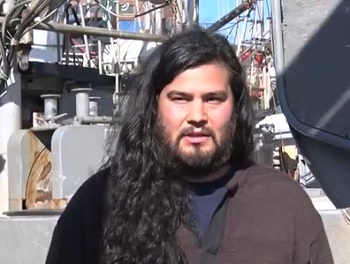
B.C. fish harvesters protest salmon fisheries closures
The Canadian Independent Fish Harvesters’ Association addressed the media near Vancouver’s Granville Island on Sep. 15. The organization is upset over DFO’s salmon closures at the end of June. According to Bernadette Jordan, the move was made as “an initial step towards longer term reductions in fishing pressure on stocks of conservation concern.” DFO’s Salmon Integrated Fisheries Management Plan will likely reduce B.C.’s commercial harvest by 60 per cent this year. Commercial fisher James Lawson says “I started behind almost $70,000 and at the last second I found out I’m not going to be able to fish; so that’s not a great position to be in and there’s no light at the end of the tunnel.” Video, >click to read< 19:14
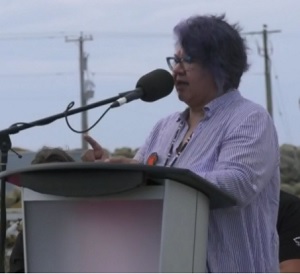
Grand Chief of Assembly of First Nations tells DFO – ‘Stop criminalizing our treaty rights’
The Grand Chief of the Assembly of First Nations is calling for an end to what she calls intimidation over the Sipekne’katik First Nation’s lobster fishery. So far this summer, hundreds of traps have been seized from St. Mary’s Bay and Archibald was on a boat that was boarded by DFO officers Thursday afternoon, who then seized the traps of the fisherman she was with. “Two DFO zodiacs with eight enforcement officers encircled and boarded the boat and later traps were pulled, confiscated and loaded onto a Coast Guard boat,” Video >click to read< 19:50
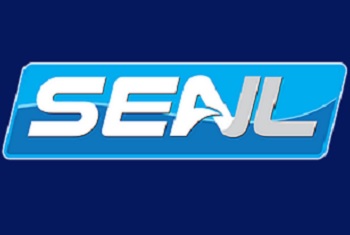
SEA-NL: Province to review foreign investment in fishery
SEA-NL is encouraged by news that the province has finally commenced a review of its policies related to foreign investment in the fishery, with consultations planned for this fall. “Our message now is for complete transparency,,, Fisheries, Forestry and Agriculture Minister Derrick Bragg wrote SEA-NL on Friday, Sept. 3rd, to reveal his department has begun work on a review of its policies regarding foreign ownership in the fishery. Bragg advised that consultations with industry stakeholders are scheduled for late October-November. The minister’s letter was in response to one written by Cleary to Premier Furey on Aug. 23rd requesting the province investigate foreign control/corporate concentration in the fish processing sector. >click to read< 10:29

Chiefs in N.B. say DFO officers ignoring fishing rights
Indigenous chiefs in New Brunswick say the federal Fisheries Department is preventing members of the St. Mary’s First Nation from feeding their families after officers last week seized a lobster fishing boat operating in the Bay of Fundy. Canada is ignoring Indigenous rights to fish for food, social and ceremonial purposes and to a livelihood fishery, the six chiefs of the Wolastoqey Nation said Wednesday in a news release. “St. Mary’s First Nation members are being prevented from feeding their families by DFO enforcement, and at the same time DFO seems intent on escalating the situation,” the chiefs wrote. “This is creating dangerous conditions for everyone on the water.” >click to read< 12:06
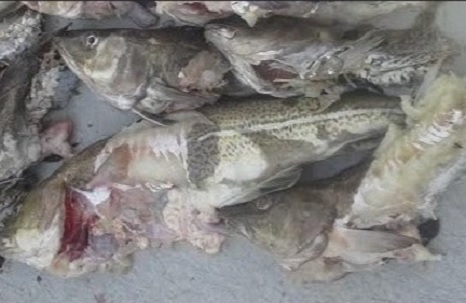
Mismanaged Since 1949 II: DFO wants to clear the air about the role of seals and focus on ecosystems. Lol.
DFO estimates the Northwest Atlantic harp seal population at 7.6 million, the highest on record (based on 2017 data), at more than triple the population of 50 years ago and still steadily increasing. But Mr. Russell’s concerns are at odds with DFO science, which says the harp seal population is not a major factor in declining fish stocks. Instead, DFO officials offer a different explanation, one that’s harder for local fishermen to accept: that climate change is at the root of the problem. DFO officials held a technical briefing at the end of June to address what they described as “misinformation” about the impacts of seals on fish such as Atlantic cod and capelin in Newfoundland and Labrador waters. During the one-hour briefing, geared toward media, the officials presented the North Atlantic seal as less of a scoundrel and more of a scapegoat. >click to read< 21:12

Mismanaged Since 1949! – A primer on fishing failures
Both the federal and municipal elections heighten our interest in whether or not fishery issues will, at last, be tackled in this province. Perhaps those running for elected positions need a primer on how our fishery was decimated over the past 70 years since Canada took over management of this resource following Newfoundland and Labrador’s Confederation entry in 1949. Hopefully, it will counter the current PR that is being disseminated by DFO, which wants Canadians to believe that it is not the department that has failed our province and our communities, but that the destruction has come from climate change, changes in water temperatures and other uncontrollable factors accounting for the demise of our once great fishery resource. There are still many, including myself, who have worked in the industry all these decades and witnessed first-hand and know full well that DFO has mismanaged our fishery since 1949. >click to read<, By Gus Etchegary, St. John’s 13:30

Bad faith, beads and trinkets negotiations by DFO obstructs court-affirmed fishery
The lack of good faith negotiations by Fisheries and Oceans Canada in its dealing with five First Nations on the West Coast could result in the criminalization of Nuu-chah-nulth fishers who exercise their court-affirmed right to a commercial fishery, asserts First Nations leadership. “The federal department of Fisheries and Oceans (DFO) continues to stonewall negotiations and acts as if it is above the law,” reads an Aug. 24 press release from the five nations impacted, Ahousaht, Hesquiaht, Ehattesaht/Chinehkint, Mowachaht/Muchalaht and Tla-o-qui-aht. The nations have said they will fish according to their own fishing plans, pitting Nuu-chah-nulth fishers against DFO officers patrolling Nuu-chah-nulth waters, because DFO hasn’t come to the table to negotiate a plan for the season. >click to read< 08:14
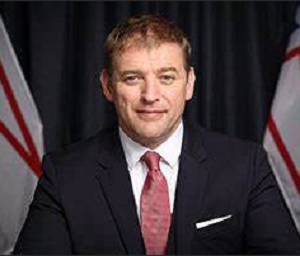
SEA-NL: Investigation into foreign control/corporate concentration in fish processing sector required
SEA-NL is calling on Premier Andrew Furey to launch an investigation into foreign control/corporate concentration in the province’s fish processing sector to coincide with a similar ongoing federal review of offshore fishing licences. The federal Department of Fisheries and Oceans (DFO) is currently reviewing foreign ownership/corporate concentration of offshore licences to prevent foreign interests from establishing effective control over licence-holders. “Ottawa’s review of offshore licences is only half the story, and only half the issues that must be addressed in the province’s fishery,” says Ryan Cleary, interim Executive Director of Seaward Enterprises Association of Newfoundland and Labrador. “The whole story about potential illegal control of offshore and inshore fish quotas won’t be told until the Premier launches a parallel investigation.” >click to read, including the letter< 20:16
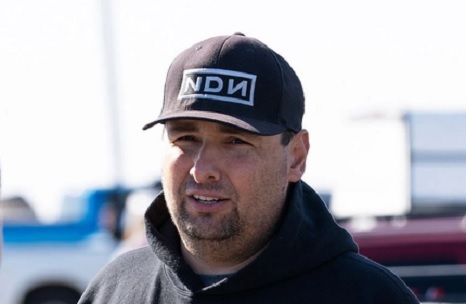
Arrested by the Feds! Chief Mike Sack busted “for promoting an illegal fishery.”
The chief of Sipekne’katik First Nation has been arrested by federal fisheries officers on the day the band’s new treaty fishery launched in southwest Nova Scotia. Chief Mike Sack was arrested on Monday, taken to the Meteghan fisheries office and later released. DFO has not provided details of why Sack was arrested, or whether he could face charges under fisheries legislation. ‘Why would you arrest me? I haven’t done anything here,'” he said. “It just seems to be all scare tactics for the fisheries, to try to stop what we have going on.” >click to read< 15:59






